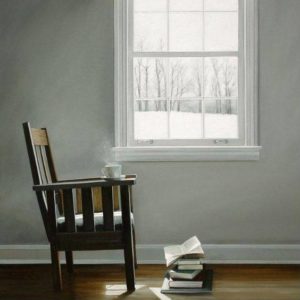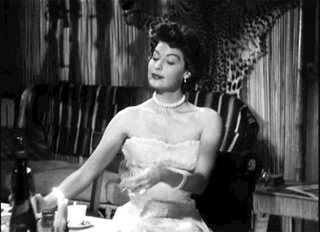One Thousand White Women by Jim Fergus
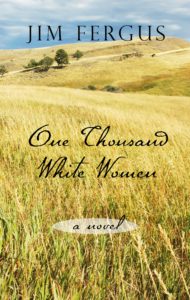 This book has languished on my shelf for years, and for some reason the other day I decided to give it a try…and got lost in it for days.
This book has languished on my shelf for years, and for some reason the other day I decided to give it a try…and got lost in it for days.
I didn’t just read this book — I inhabited it.
Published back in 1998 (which may be how long I’ve had it), One Thousand White Women is a fictional re-imagining of a true event. In the author’s note, Mr. Fergus writes that he came across an interesting historical record. In 1854 at a peace conference, a Cheyenne chief made a request to trade white women for horses. The Cheyennes astutely saw the future and were looking for a peaceful solution. The women would become brides and their children would allow easier assimilation into the white man’s society. The request was soundly rejected by the US government.
But, Mr. Fergus wondered, what if it did happen? What if the government agreed to this absurd proposal and sent white women to marry into the Cheyenne tribe? The result is this wonderful and devastating book.
The novel imagines that the government recruited women volunteers from brothels and institutions under a so-called BFI (Brides for Indians) program to “assimilate the heathens”. One Thousand White Women centers on May Dodd whose story is told through her journals and letters.
May Dodd comes from a prominent Chicago family. When she runs off with a common laborer and has two children out of wedlock, her influential father has her committed to an insane asylum and has taken her children away to educate properly. With nothing left to lose, May volunteers for the program:
Frankly, from the way I have been treated by the so-called civilized people in my life, I rather look forward to residency among the savages.
And so we’re off with the first trainload of white women bound for the Great Plains and their new lives as brides of the Cheyenne nation. On the train are a troupe of vulnerable women and these supporting characters start out predictably stereotypical. We have Irish twins out to scam everyone, a fallen Southern belle (who hates blacks and uses the N word), a large homely Swiss woman — well the list goes on. I must admit, here the writing became clunky. But as the novel goes on, we learn each woman has their own reasons to want to start new lives. During their long journey the women get to know each other, reveal their various sad backgrounds, and as Fort Laramie draws closer, they grow more frightened and are drawn closer.
Eventually, they reach Fort Laramie where they are told to take only what they can carry and continue their journey on horseback. Once they arrive at the Cheyenne camp, there are nowhere near 1,000 women, merely 40-50 total and the women question their decision.
So what is our position then — officially speaking? Are we nothing more than sacrificial lambs? An interesting, but unsuccessful political experiment? Missionaries stranded in the line of duty? Or perhaps easiest to explain, white women gone astray, taking up with savages of our own volition?
After they are left behind, the women inevitably have to adapt to the camp and its inhabitants. They are eventually paired off with Cheyenne men and wedding plans are made. May is pleased to marry the chief, Little Wolf, some of the other women are less fortunate. But all make the best of the situation.
And here is where I fell headlong into the wonderful descriptions of the challenges, beauty and even the drudgery of daily life with the Cheyenne. The wild landscape, hunting for game, bathing in ponds, cozy teepees, and the Cheyenne wedding ceremonies. But all is not idyllic, there are battles with other tribes, violent rapes (yes that’s plural), and the Cheyenne’s first experience with whisky (not good). Mr. Fergus has done some fine research on 19th century native American culture, and his writing shows both compassion and insight.
There’s a poignant turning point when, after six months, the women return with their husbands and tribe to visit Fort Laramie. Wearing deerskin dresses and many now pregnant, they are not welcomed but rather met with revulsion and horror by the residents. They now look, act, and smell like squaws and bear no resemblance to the white women they once were.
How strange to recall that six months ago we departed Fort Laramie as anxious white women entering the wilderness for the first time; and now, perhaps equally anxious, we leave as squaws returning home. I realized anew as we rode into the cold north wind on this morning that my own commitment had been forever sealed by the new heart that beats in my belly; that I could not have remained even if I so wished.
Some readers may have trouble with the plausibility of this story and many other reviewers found One Thousand White Women ludicrous. My only quibble was the modern day insights and actions that leaked into the journals and letters of what was supposed to be a typical 19th century woman. There were even some thoughts on global warming, which I doubt was on the minds of anyone living in the late 1800’s.
But still, I found One Thousand White Women captivating and completely different. I often forgot reality and the fact that I was reading a novel. I was living in a different world — in a different time. A stay-up-late adventure story filled with action, humor, romance, insight and beauty.
BookBarmy Warning: there is graphic sex and violence – this is not a book for the faint of heart or prude. Nonetheless, I’m passing it on to my mother – as she is neither.
The Music Shop by Rachel Joyce
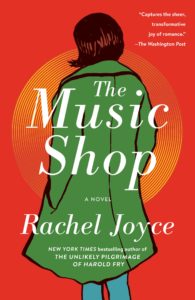 I’m re-posting this review, because I found a copy of this gem in one of my little free libraries — and decided to re-read it the other night. Maybe it was just my mood, but I enjoyed it just as much – if not more – with the second reading. The Music Shop is deceptive novel, seemingly simple — but actually delves deep to celebrate the joy and comfort of music and the kindness of friends. Perhaps a reminder we all need.
I’m re-posting this review, because I found a copy of this gem in one of my little free libraries — and decided to re-read it the other night. Maybe it was just my mood, but I enjoyed it just as much – if not more – with the second reading. The Music Shop is deceptive novel, seemingly simple — but actually delves deep to celebrate the joy and comfort of music and the kindness of friends. Perhaps a reminder we all need.
Right up there with my love of books and reading — is a love of music. Music of all sorts really — from jazz to classical, early choral to classic rock. There are CDs and records aplenty in the cupboards and I nerd out creating Spotify playlists for both entertaining and my quiet reading times. There’s most always music playing in our house (with the exception of football season).
So when The Music Shop came to me, I was jazzed (sorry). Not only because it was from the author that wrote THIS, but also because it had been highly touted by other book bloggers.
It’s 1988 in a provincial town in England, and down on Unity Street is a dingy music shop run by the shy, socially awkward Frank.
There was once a music shop. From the outside it looked like any shop, in any backstreet. It had no name above the door. No record display in the window. There was just a homemade poster stuck to the glass. FOR THE MUSIC YOU NEED!! EVERYONE WELCOME!! WE ONLY SELL VINYL!!”
Unity Street also boasts a pub and six shops facing a row of Victorian houses. The neighborhood is slowly deteriorating as shops face economic decay and reluctantly sell out to developers. We’re introduced to the cast of characters on Unity Street — a grim tattoo artist, a recovering alcoholic ex-priest who runs a religious gift shop, a hand-holding twin brother team of undertakers, a grumpy tea-shop waitress, the overly-enthusiastic adolescent music shop assistant, and of course, Frank, forty, single and living above his music shop. This band of motley neighbors and shop owners are somehow endearing – as they care and help each other.
Frank is somewhat of a music savant — he can sense the music that will help those who come into the music shop searching for some sort of solace in a record.
Frank could not play music, he could not read a score, he had no practical knowledge whatsoever, but when he sat in front of a customer and truly listened, he heard a kind of song.
His shop was permanently occupied by people who would otherwise be roaming the streets or weeping in bedsits.
Frank made listening booths from old wardrobes:
[these booths] Frank had made himself from a pair of matching Victorian wardrobes of incredible magnitude he had spotted on a skip. He had sawn off the feet, removed the hanging rails and sets of drawers, and drilled small holes to connect each one with cable to his turntable. Frank had found two armchairs small enough to fit inside, but comfortable. He had even polished the wood until it gleamed like black gloss paint, revealing a delicate inlay in the doors of mother-of-pearl birds and flowers.
I can just imagine listening to music cocooned is such loveliness. Chapters start with music titles, so as I was reading The Music Shop, I would play the exact music. And because this book is all about music — The Washington Post called it “an unabashedly sentimental tribute to the healing power of great songs”, The Music Shop has its own soundtrack. I will link the music where I can throughout, making this an interactive review and will give you the entire playlist at the end — no charge.
For Maud (the tattooist), Frank recommends Samuel Barber’s Adagio for Strings, eight minutes of music that convinces her that while her life is not that great, or even fair, it may be worth living anyhow. (One of my favorite pieces of music ever, always brings tears to my eyes.)
For a groom whose bride cheated on him, Frank pulls out one of Aretha’s early albums and puts him in the listening booth to hear one song — Oh No Not My Baby
Frank’s unconventional and troubled mother, Peg taught him about music and the book flashes back to a younger Frank on the floor listening to records with his mother. Just a couple of my favorite passages:
if you listen, the world changes. It’s like falling in love. Only no one gets hurt.
This is the record that will change history,’ said Peg. ‘Why?’ She blew a plume of smoke towards a tea-coloured patch on the ceiling. ‘Because it takes music to a whole new place. Miles Davis booked all the best players but they had hardly any idea what they were going to play. He gave them outlines, told them to improvise, and they played as if the music was sitting right with them in the studio. One day everyone will have Kind of Blue. Even the people who don’t like jazz will have it.’
But wait, there is a plot in The Music Shop. One day, Ilse, a mysterious German woman faints outside the music shop and while Frank and his assistant come to her aid, Frank falls in love with her.
Ilse falls for Frank as well, but neither are ready or willing to show their feelings yet. Ilse asks Frank to teach her about music and they meet every week in the tea shop (with the grumpy waitress) and Frank talks and talks about music. Not knowing how to express his love, he instead shows his heart through his love of music.
He was perfectly fine with emotions, so long as they belonged to other people.
Franks tells her of Pérotin a 12th century European Composer.
Once you’ve heard Beata viscera, you’ll never forget it. It’s just a single human voice but it feels like stepping onto a bird’s back. The moment it starts, you’re flying. It takes you up, it swoops you down, and then it lifts you so high you’re a pinprick in the sky. But if you close your eyes and really listen, it holds you safe the whole way. Until I heard [it] I had no idea human beings could be so beautiful.
There’s a hidden identity, a misunderstanding, Ilse flees back to Germany and it appears Frank has lost the love of his life – or has he? Meanwhile, the neighbors and shop owners must fight developers who want to take over Unity Street. The threat of gentrification looks inevitable and Frank’s beloved shop may have to close. Broken hearted Frank no longer cares – or does he? You’ll have to read the book to find out — no spoilers here.
Where Ms. Joyce really shines is in her literary ability to bring music to life — all forms of music. The solace and joy of music. Why we listen and why we need music in our lives. But most importantly — how music can change a life and perhaps even save one.
The silence at the beginning of a piece of music is always different from the silence at the end.
As you may have surmised, this is not Dostoevsky, it’s a simple plot, but with a great deal of heart. The Music Shop is a book you’ll read with a smile. This is the type of book I love reading and I suspect you will too.
We can tackle The Brothers Karamazov later.
Complete soundtrack:
A digital review copy was provided by Random House via Netgalley
The Wonky Donkey
A children’s book on Book Barmy?
Just watch this lovely Scottish lady reading the book to her grandson…
I’ll wait right here. Turn the sound up. And be sure to watch to the end.
Didn’t that just make you smile?
This video is all over the web right now. I decided to see if I could find a copy of this hysterical book for some favorite parents and grandparents.
Obviously, everyone else had the same idea — it’s out of stock and a few grubby folks with used copies are asking $500!
I imagine the publisher is furiously reprinting The Wonky Donkey as we speak. I’ll be buying multiple copies…
The Bookshop by Penelope Fitzgerald
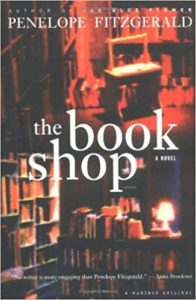 Another of my favorite books — The Bookshop has been made into a film.
Another of my favorite books — The Bookshop has been made into a film.
If you’ve not discovered Penelope Fitzgerald, well I’ll just say — you should. She was a Booker Prize English novelist, poet, essayist and biographer. And The Times included her in their list of the 50 greatest British writers.
The Bookshop is a human satire that plays out in a dreary, almost forgotten English seaside village, aptly named Hardborough. Florence Green opens her Old House Bookshop with some immediate success but is soon met with hostility from the town’s less prosperous shop owners. But the most vocal is Mrs. Gamart, the local arts patron who had wanted the bookshop space for her high-minded art center.
Florence is strong, yet kind — introspective but naive. Her dream of bringing literature to Hardborough is met with backbiting politics, and parochialism of a village resenting the intrusion of a relative newcomer.
To make matters worse, Florence discovers her bookshop comes with a leaky cellar, and even a ghost.
Florence does have some friends, the reclusive Mr. Brundish, and the precocious eleven-year-old Christine who comes to work in the bookshop. But the thing that puts everyone over the edge in this 1959 English village is her window display of the new and controversial novel Lolita
It’s a good book and therefore you should try to sell it… They won’t understand it, but that is all to the good. Understanding makes the mind lazy.
Ms. Fitzgerald gives the reader a subtle, yet razor sharp, view into the insularity of a small village and how petty people can be when faced with change.
Only too late does she begin to suspect the truth: a town that lacks a bookshop isn’t always a town that wants one.
I won’t sugar coat — this is not a feel-good bookstore novel. The Bookshop is an often harsh story and there’s not a bit of romanticism. And, sorry folks, there’s no happy ending, with everyone coming around to embrace the new bookshop. The ending leaves many unanswered questions which, if you’re like me, you’ll ponder long afterwards. I imagine just as the author wanted. To quote from the book itself:
[She] loved the moment when you finished a book and the story keeps playing like the most vivid dream in your head.
The Bookshop is a lovely, sly little novel in which a morality tale becomes both simultaneously humorous and tragic
And a final warning, Ms. Fitzgerald requires slow and attentive reading, all the better to appreciate the gorgeous writing and sly humor.
The film opened a couple of days ago and I’m looking forward to seeing it. The casting looks superb, I can only hope they don’t sprinkle it with too much saccharine.
Film trailer HERE
Summer break
Book Barmy is taking a bit of a summer break.
While I thought my summer would be like this…
Instead, we’re having a lovely, but busy time with visitors and celebrations.
Reunions with loved ones not seen for months — even years. We’ve been catching up, meeting new babies, graduates off to college, birthdays – lots of laughter mixed with a few tears. Life marches on — very sobering as Husband and I don’t feel any older.
So my books are abandoned – while I happily play elsewhere…
Stay tuned — despite limited reading time, I am halfway through what is proving to be a great book.
Exit West by Mohsin Hamid
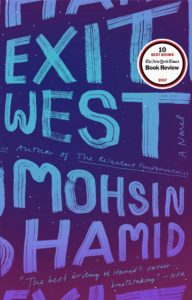 It’s taken me forever to write this review.
It’s taken me forever to write this review.
It took me forever to read the book.
This is one of those Very Important books. Nominated for a Manbooker Prize, high praise from NPR, and named one of The New York Times 10 best books. Exit West has been on many must read lists since it came out in 2017.
Timely — a love story set in a world descending into chaos over a massive influx of refugees. Okay I will read Exit West, this Very Important novel. And then, I thought, I’ll have something to talk about at parties (if I ever went to any).
As one reviewer said:
…both lyrical and urgent, this globalist novel evokes the dreams and disillusionment that follow Saeed and Nadia…peels away the dross of bigotry to expose the beauty of our common humanity.
The story centers on Saeed and Nadia who fall in love despite religious and societal differences in their unnamed country in the middle east, and as civil unrest builds in their country, they are forced to flee as refugees.
They secure escape through a series of magic doors that connect one country to another. Passage through the fictional doors is both risky and expensive — an obvious metaphor to the truth. The couple journeys to Greece, England, and eventually the United States through these doors, joining other immigrants along the way. As the borders are perforated by the magic doors, the refugees become their own humongous nationality regardless of national origin. There are serious impacts to both the new country and their personal lives.
See? Very Important book — Very Important topic
It’s a short book and should have taken only a few hours to read — yet, I kept putting it down.
I struggled to keep reading, struggled further to even finish it. And I’ve squandered an inordinate amount of time thinking about why I didn’t like Exit West.
It comes down to this ~~
This is just not a good book. Often poorly written, usually boring, and at times felt like I was reading an early draft. There are half page run-on sentences. The cool, detached narration meant I never warmed to the story, the characters, or their plight.
The concept of magical doors in a war torn country sweeping refugees to the peaceful west had such potential – but alas, it never really works. I never really believed in them. (Remember I read time travel books, so I can fall into magical realism.) The fictional doors remained a gimmick, not the metaphor both I, and I think the author, hoped for. It made me wonder why fictional doors? Isn’t the true refugee experience harrowing enough?
There are superfluous vignettes which introduce other poor souls but these are never re-introduced into the plot and were left unresolved.
The book ends without any sort of view into the future and had a post-apocalyptic feel about it.
After all the Very Important book hype, I anticipated a powerful novel that would not only sear into my heart, but also provide insight into the issue of immigration and the hard issues surrounding their resettlement.
I almost exited (!) the book several times, but I kept with it, so you won’t have to.
That’s just the kind of service we aim to provide here on Book Barmy. You can thank me later.
I’m off to find something to cheer me up.
I know, a nice cup of tea and the season 5 Great British Baking Show saved for marathon watching — and, perhaps this…




